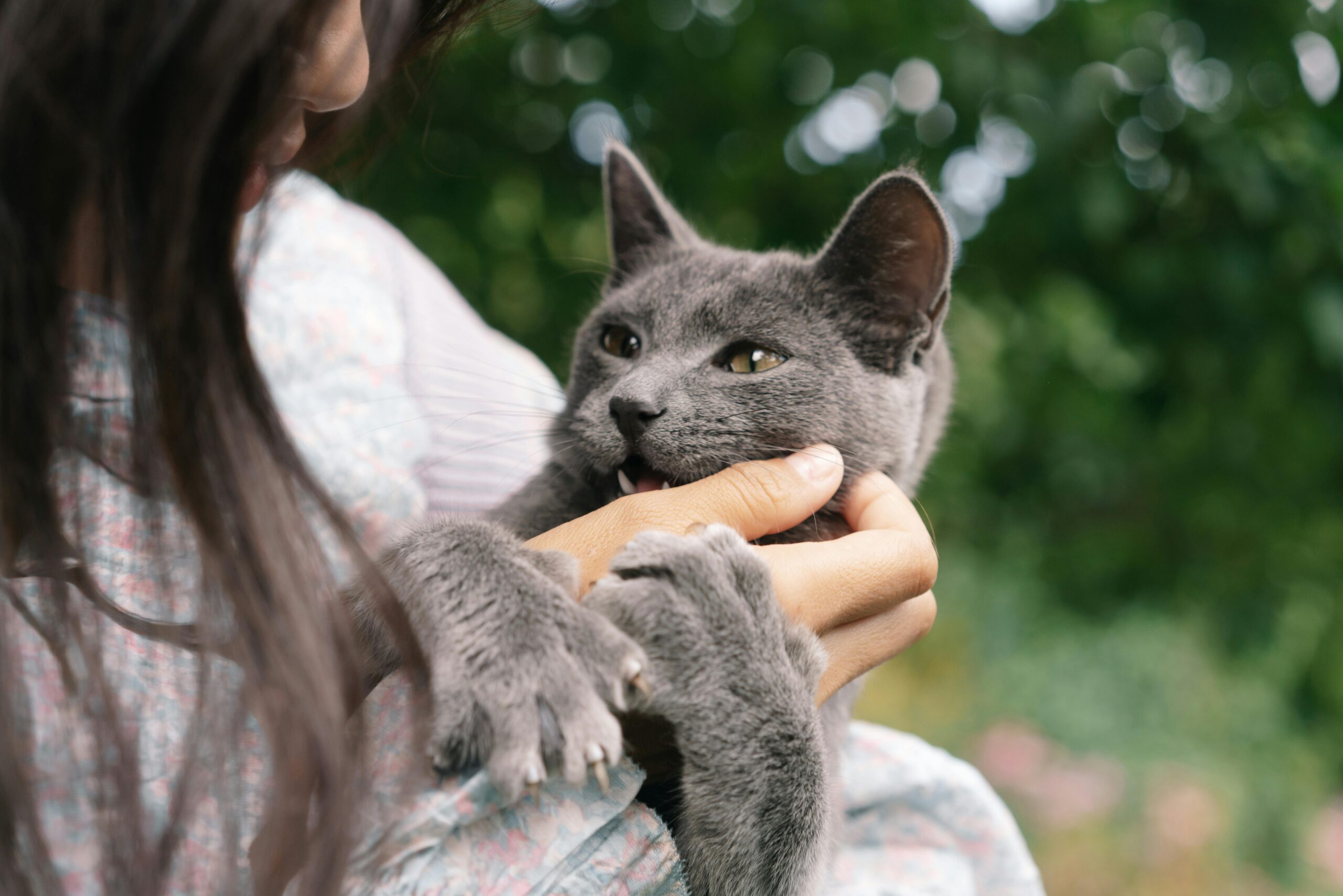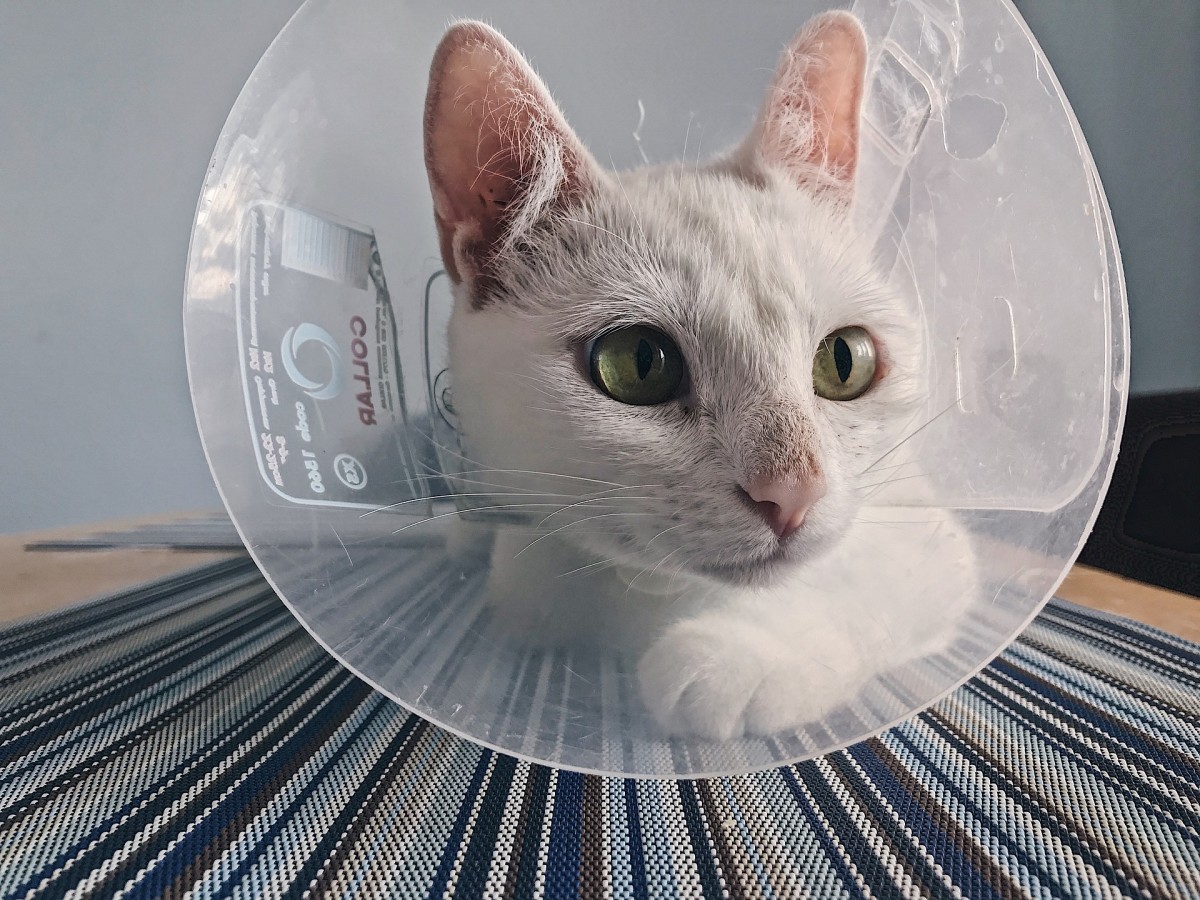Why Isn’t My Cat Eating Much But Acting Normal?
When a cat is not eating much but acting normal, it’s usually something pretty minor, like them being fussy about their food or just feeling too warm during the summer months. Generally, cats lose their appetites for much of the same reasons we do.
But what’s important to know is that if your cat hasn’t touched their food for more than a day or two, or if they start acting “off” in other ways, we need to pay close attention. Sometimes a reduced appetite means something else is going on that needs a vet’s help.
Here are the most common reasons a cat won’t eat much (while still acting totally fine), plus what you can actually do about each one.
1. Your Cat Doesn’t Like the Food
This is probably the biggest reason cats suddenly lose interest in their meals. They just don’t like what you put in the bowl. In my experience, cats are ridiculously picky eaters, and they’ll turn their nose up at food that smells weird to them, food that’s been sitting out too long, or the same old stuff they’ve been eating forever that’s suddenly “beneath them.”
What to try:
- Try mixing in a tablespoon of warmed, low-sodium chicken broth to make it smell better
- Steer clear of broths with onions, onion powder, chives, or garlic…those are actually toxic to cats
- Try introducing new flavors gradually if they seem bored
Important: Please do check with your vet before switching up your cat’s diet significantly, especially if they already have health problems!

2. Recent Vaccination Side Effects
You know how you might feel a bit rough after getting vaccinated? Cats get that, too. It’s totally normal for them to feel queasy or not want to eat much for a day or two after their shots.
When to call the vet:
- They’re still not eating after 48 hours
- They’re having trouble breathing, throwing up, or having diarrhea
- As a general rule, they seem way more tired than normal
These could mean they’re having a reaction that needs attention right away.
3. Hot Weather Affects Appetite
If your cat’s not eating much but acting normal during summer, heat is an obvious reason. There’s actually research showing cats eat about 15% less when it’s warm, even if they’re inside most of the time. Makes sense, right? They don’t need as many calories when they’re not working to stay warm.
Summer care tips:
- Keep a few water bowls around the house.
- Change the water at least twice a day so it’s fresh.
- Keep in mind that wet food helps with hydration, too. (Read our tips to get your cat to eat wet food)
- Check for dehydration by gently pinching their skin. It should snap back quickly. If it doesn’t, or if their gums look dry, please call your vet.

4. Mild Digestive Upset
Sometimes cats get an upset tummy from a mild virus, bacterial issue, or just inflammation. If it’s not too serious, they might not show any other symptoms and just keep doing their normal cat stuff.
Watch for these warning signs:
- Throwing up or diarrhea
- Straining in the litter box or constipation
- Losing weight over a few days
- Looking uncomfortable or hunched over
Even if they seem okay now, digestive issues can get worse fast. Keep a close eye on them, and if symptoms show up or they’re still not eating after two days, call your vet.
5. Dental Pain or Oral Disease
Cats hide dental pain like nobody’s business. Even with pretty bad oral disease, many of them act completely normal (that is, until it’s time to eat). Then dental problems make chewing hurt, especially dry kibble.
Signs of dental issues:
- Suddenly preferring wet food over kibble
- Dropping food while eating
- Pawing at their mouth
- Really bad breath
- You can see tartar buildup, or their gums look red and swollen
Ask your vet about dental exams and cleanings if you think this might be the problem. Cats who just had dental surgery (like getting teeth pulled) will also eat less while they’re healing.

6. Upper Respiratory Infection (Cat Cold)
When cats can’t smell their food because their nose is stuffed up, they simply won’t eat. They rely so much on smell to work up an appetite that even a mild cold can put them off food completely.
How to help:
- Offer really smelly wet food; fish varieties work great
- Warm the food a bit (test it first!) so it smells stronger
- Run a humidifier near where they sleep to help with congestion
- Gently wipe away any discharge from their face
When to see the vet: If they develop a fever, runny nose, watery eyes, sneezing, or seem really tired, get them checked out. Upper respiratory infections can get serious without treatment.
7. Stress and Anxiety
Cats absolutely hate when their routine changes. Any disruption, new people, moving furniture around, or changes in the household can make them eat less. There’s research showing cats grieve and get anxious; they might stop eating after losing a companion (another pet or person), moving, or dealing with other stressful stuff.
Stress-reducing strategies:
- Try pheromone diffusers like Feliway (*affiliate link); they actually work wonders for most cats
- Stick to the same feeding schedule every day
- Show them to a quiet, safe spot where they can hide if they want
- Spend some quality time playing with them or just hanging out
- Think about what’s changed recently; new pets? Construction noise? Different work schedule?
Mild stress usually sorts itself out pretty quickly. But if your cat seems really anxious for a while, they might need behavioral help or medication from your vet.

8. Medication Side Effects
A lot of medications make cats feel nauseous or upset their stomach, which kills their appetite. This happens a lot with antibiotics, pain meds, and longer-term treatments.
What to do:
- If it’s a short-term medication, you might just need to wait it out as long as they’re eating something
- For long-term medications, ask your vet about other options or appetite stimulants
- Never stop giving prescribed meds without talking to your vet first
- Ask if giving the medication with food would help
9. Pain or Discomfort
Cats hide pain…it’s just what they do. But even low-level discomfort can make them eat less. You might see them eating smaller amounts but otherwise acting just fine.
Common pain indicators:
- Not moving around as much or avoiding jumps
- Grooming less than usual
- Hiding more often
- Sleeping in different spots
- Looking “tense”
- Not interacting with the family as much
If your cat’s not eating much but acting normal in other ways, pain could still be part of it. These guys are so good at hiding when they hurt that you might not notice until it’s really bad. A vet exam can find hidden problems like arthritis, injuries, or internal issues.

10. Underlying Chronic Illness
It’s less common when a cat seems normal otherwise, but some chronic conditions gradually reduce appetite. For instance, older cats can develop things like:
- Early kidney disease
- Hyperthyroidism
- Liver disease
- Heart disease
- Cancer (though there are usually other symptoms too)
Important note: If your cat’s not eating much but acting normal, serious illness is pretty unlikely. But chronic diseases do progress slowly, and lack of appetite can be an early warning sign. That’s why regular vet checkups matter so much, especially as your pet ages.
Cats on medication for chronic conditions might go off their food either from the medication itself or because the disease is progressing. To be safe, it’s best to keep your vet in the loop about any eating changes so they can track how things are going.
How to Encourage Your Cat to Eat
If illness isn’t the issue and your cat’s not eating much but still acting normal, here are some tricks to get them eating:
Food modifications:
- Add a bit of tuna juice, boneless sardines, or plain cooked chicken to their regular food
- Warm wet food to body temperature (not hot!); it smells stronger that way
- Try different textures. Some cats want pâté, others want chunks in gravy
- Use a shallow dish; some cats hate it when their whiskers touch the bowl sides
Feeding strategies:
- Take away food that’s been sitting out for 30 minutes
- Give smaller meals more often instead of one or two big ones
- Feed them somewhere quiet and calm
- Keep food away from the litter box
- If they’re bored, try puzzle feeders or food-dispensing toys

Tip: If medical problems are causing the appetite loss, talk to your vet. They might recommend appetite stimulants like mirtazapine or maropitant, prescription recovery food, or, in bad cases, syringe-feeding liquid nutrition.
When to Call Your Veterinarian
Call your vet if any of these happen:
- No food for 24-48 hours (12-24 hours for kittens)
- Not drinking water either
- Obvious weight loss or body condition changes
- Vomiting, diarrhea, or constipation
- Acting differently—hiding, being aggressive, or yowling a lot
- Any other worrying symptoms
Why timing matters: Cats can develop hepatic lipidosis (fatty liver disease) after just 2-3 days without eating. It’s serious and needs immediate treatment. Catching it early means better results and usually lower vet bills.
Final Thoughts: When Your Cat’s Not Eating Much But Acting Normal
Most of the time, when a cat is not eating much but acting normal, you’re dealing with something minor that’ll sort itself out: picky eating, warm weather, or a bit of stress. With some simple changes, these situations usually fix themselves within a couple of days.
That said, trust your gut. You know your cat better than anyone. In other words, if something feels off, even if you can’t put your finger on exactly what, just call your vet. It’s always better to check than to sit around worrying.
Have you dealt with this? What worked for your cat? Remember, this is general info and shouldn’t replace actual veterinary advice for your specific situation.
References:
- Cornell Feline Health Center – Feline Behavior Problems: Feeding
- VCA Animal Hospitals – Loss of Appetite in Cats
- American Veterinary Medical Association (AVMA) – Vaccination Reactions
- International Cat Care – Dental Disease in Cats
- American Association of Feline Practitioners – Feline Upper Respiratory Infection
- PetMD – Hepatic Lipidosis in Cats
- Feliway Official Site – Clinical Studies
- Cornell Feline Health Center – Caring for Your Senior Cat
- VCA Animal Hospitals – Appetite Stimulants for Cats
- International Cat Care – Pain in Cats




